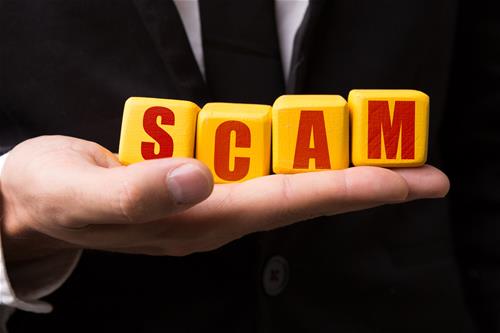
The coronavirus isn’t the only thing that has been spreading in recent weeks. The Federal Trade Commission and state attorneys general all over the country have reported an uptick in deceptive scams, many of them tied directly to COVID-19. These scams can be alarming and very costly, often draining victims of hundreds or thousands of dollars.
We are particularly concerned now because many of the members and communities we serve will receive a check as a result of government action to address the economic impact of COVID-19. These relief payments are formally called Economic Impact Payment checks, issued by the federal Department of the Treasury. If you have any question about whether your check is authentic, you can verify it at tcva.fiscal.treasury.gov.
Protect Your Economic Impact Check
Already scammers have developed schemes to steal Economic Impact funds by making false claims. Please be wary of strangers who contact you about your check. Here is advice from the company ePay:
"If you receive calls, emails, or other communications claiming to be from the Treasury Department and offering COVID-19 related grants or stimulus payments in exchange for personal financial information, or an advance fee, or charge of any kind, including the purchase of gift cards, please do not respond; instead, contact the FBI so that the scammers can be tracked and stopped."
We also recommend that you keep your funds safe by depositing your check with a financial institution you trust, whether it is Self-Help or another credit union or bank.
As a quick reference, here are some behaviors that should raise red flags when you encounter them. This list is not comprehensive by any means, but it does include a few of the most common deceptions. Here’s what scammers do:
They ask for personal information, like your social security or your bank account number.
Do not share this information with anyone you do not know and trust. Reputable companies will not suddenly contact you and ask for this information over the telephone or by email.
They say they are collecting a fee for your government relief check, or they promise to send the check to you faster.
Hang up or delete immediately. There is no fee associated with government stimulus checks, and there is nothing you or any other individual can do to make it come sooner.
They claim to have medications or a cure for COVID-19.
This is especially vile as scammers try to take advantage of widespread anxiety and desperate wishes. Unfortunately, today there is no cure, vaccine or miracle medicine. For accurate medical information, rely on agencies such as the World Health Organization and the Centers for Disease Control and Prevention.
They send an email and urge you to open the attached document.
Be extremely cautious. If you don’t know the sender of the email, or if the message seems odd or unexpected in any way, do not open the attachment. Doing so can release malicious software on your computer that gives the sender complete access to your information. If the sender is known to you and you have any doubts, double check with them in a separate message before clicking on the attachment.
They send an email that looks like it’s from a legitimate group—say, the World Health Organization—and provide a handy link where you can make a donation.
Don’t click! If you want to donate, it is safer to go directly to the organization’s website.
They call and identify themselves as a big government agency, like the Social Security Administration. Or your grandchild who is having an emergency. Or Microsoft or Apple. Or some charming person you’ve met online.
These are called “imposter” scams, and the common thread is that they are usually asking you to respond to an urgent situation that requires money. Remember that no government agency or big company will call you out of the blue and demand money immediately. If the caller doesn’t want to give you time to consult with family members or advisers, they don’t have your best interests at heart.
You can find many good resources online, including this helpful article from Nerdwallet that focuses specifically on relief scams.
If your Self-Help debit or credit card has been stolen or compromised as a result of a scam, please call your local branch or our Member Services Center (800-966-7353) right away so that we can assist you. Otherwise, scams can be reported to the Federal Trade Commission or to your state Attorney General’s office.
ADDITIONAL RESOURCES
Here are more resources provided by ePay:
- The IRS has issued a warning urging taxpayers to be on the lookout for Coronavirus-related phishing attempts that can lead to fraud and identity theft. Fraud involving payment of Federal taxes should be reported to the Treasury Inspector General for Tax Administration.
- The FTC is tracking complaints related to coronavirus and taking actions against scammers using the pandemic to defraud consumers. Find out more about the types of scams and how to avoid them at https://www.ftc.gov/coronavirus. You can sign up for daily alerts from their Consumer Information Blog to stay on top of the latest threats.
- The CDC is aware of phishing emails and spoofed calls and voice mails appearing to originate from them. Find out more at https://www.cdc.gov/media/phishing.html.
-
The World Health Organization (WHO) offers tips for authenticating communications that purport to be from them at https://www.who.int/about/communications/cyber-security.
-
CFPB offers tips for recognizing and avoiding pandemic-related scams, including scams offering COVID-19 testing, cures, vaccines, and air filters; fake charities; person-in-need scams; and Social Security scams.
-
FS-ISAC has compiled robust lists of work-from-home security tips for institutions and individuals.
-
The National Consumers League (NCL) has issued a fraud alert warning of the coming coronavirus scam tsunami, specifically robocalls and stimulus check scams.